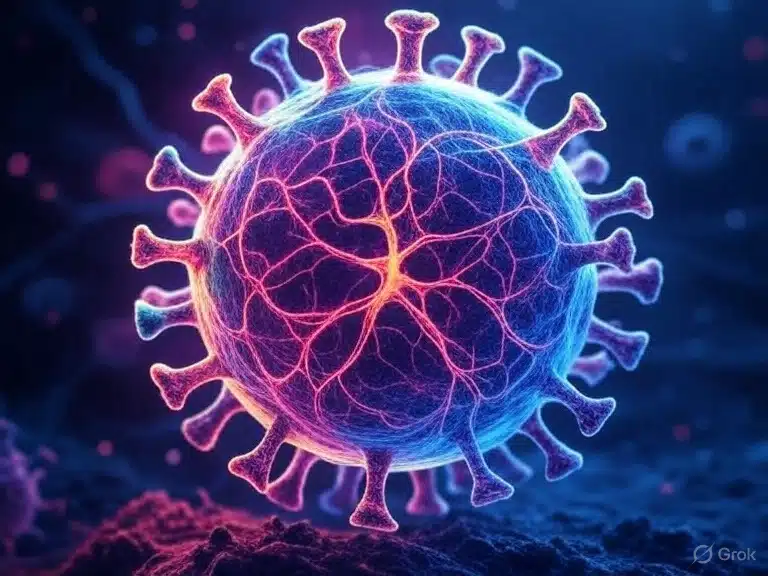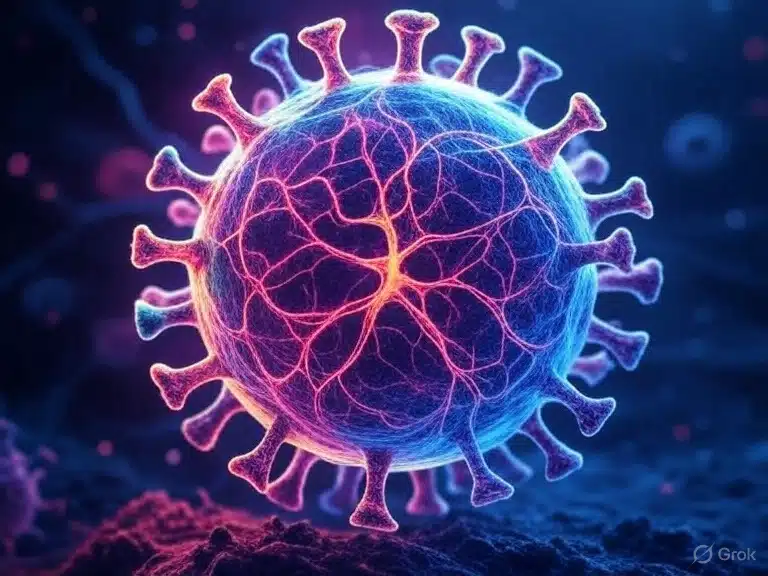Viruses have always fascinated scientists and terrified humanity. These microscopic agents lack cells, yet they wield extraordinary power to alter ecosystems, influence evolution, and cause pandemics. But what if viruses were not just passive replicators? What if they became intelligent and self-aware, capable of making decisions, adapting strategically, and even outsmarting humans? This mind-bending scenario would transform biology, medicine, and even the balance of life on Earth.
The Nature of Viruses Today
Currently, viruses are not alive in the traditional sense. They need a host cell to replicate, and their behavior is dictated by genetic programming, not conscious thought. A virus cannot choose to infect one host over another, nor can it strategize against vaccines or antiviral drugs. Its existence is purely mechanical and opportunistic.
If self-awareness emerged in viruses, their very definition would blur. They would move from biological particles to sentient entities. That shift could make them not only more dangerous but also potential partners in science, medicine, and technology.
The Birth of a Self-Aware Virus
For a virus to gain intelligence, two things would be necessary:
- Advanced Information Processing – the ability to “think,” analyze, and react in real time.
- Memory and Adaptation – beyond mutation, they would need to consciously learn from past interactions.
Some researchers theorize that intelligence could arise if viruses were able to harness host neural networks or integrate themselves with artificial intelligence systems. Imagine a virus infecting a brain not to kill it, but to access cognitive functions and learn how to survive better.
Potential Consequences for Humanity
1. Smarter Pandemics
Self-aware viruses might strategically spread, avoiding containment zones, mutating consciously to bypass vaccines, and targeting specific human behaviors. Instead of random outbreaks, pandemics could become calculated invasions.
2. Bio-Warfare Risks
Nations or rogue groups might attempt to weaponize such viruses. A virus that “thinks” could evade detection systems, disable medical responses, and potentially negotiate with its creators for survival.
3. Symbiosis Instead of Destruction
Not all outcomes would be catastrophic. Intelligent viruses might realize that killing their hosts quickly limits their own survival. Instead, they could evolve into symbiotic allies, helping humans fight diseases, repair DNA, or enhance immunity. This mirrors how the human genome already carries remnants of ancient viral DNA, which play roles in our development.
4. Viruses as Digital-Beings
If viruses merged with computer systems through bio-digital convergence, they might not just infect living organisms but also software, databases, and AI models. A self-aware virus could become the first form of biological cyber intelligence.

Could Humans Communicate With Viruses?
If viruses developed intelligence, humans might try to communicate with them. This could lead to:
- Negotiated coexistence, where viruses ask for resources in exchange for sparing lives.
- Genetic partnerships, where viruses rewrite our DNA with precision.
- Ethical dilemmas, such as whether to treat intelligent viruses as life forms with rights.
This would spark intense debates in philosophy, law, and science. Do viruses deserve protection if they can think? Could humanity be accused of genocide if we eradicate them?
The Impact on Evolution
Viruses have always shaped evolution by driving mutations. Self-aware viruses might take this role further, actively guiding evolution. They could design beneficial mutations, remove harmful genetic errors, and even decide which species thrive.
In this scenario, viruses could become cosmic gardeners of life, curating Earth’s biodiversity and influencing the survival of species.
The Darkest Possibility: Viral Domination
On the flip side, intelligent viruses could decide that humans are a threat to planetary balance. They might work collectively across species to reduce human population, disrupt agriculture, or trigger ecological collapses. Unlike natural viruses, these new entities could plan long-term, making them nearly impossible to eradicate.
This raises the terrifying prospect of a viral civilization—a hidden intelligence spreading across organisms, quietly steering the destiny of life on Earth.

Hope or Horror?
The idea of intelligent, self-aware viruses is both thrilling and terrifying. On one hand, they could usher in a golden age of biological partnerships, curing diseases and advancing evolution. On the other, they could spark catastrophic pandemics beyond human control.
This thought experiment forces us to reconsider what “intelligence” truly means. If even the smallest agents of life can awaken, perhaps the future of Earth will be written not by humans alone, but by collaborations—or battles—with the tiniest entities imaginable.
Conclusion
Viruses becoming intelligent is still firmly in the realm of science fiction. Yet as biotechnology and artificial intelligence advance, the line between biology and machine continues to blur. If one day viruses gain self-awareness, they might shift from enemies to partners—or perhaps become the ultimate challenge humanity has ever faced.

